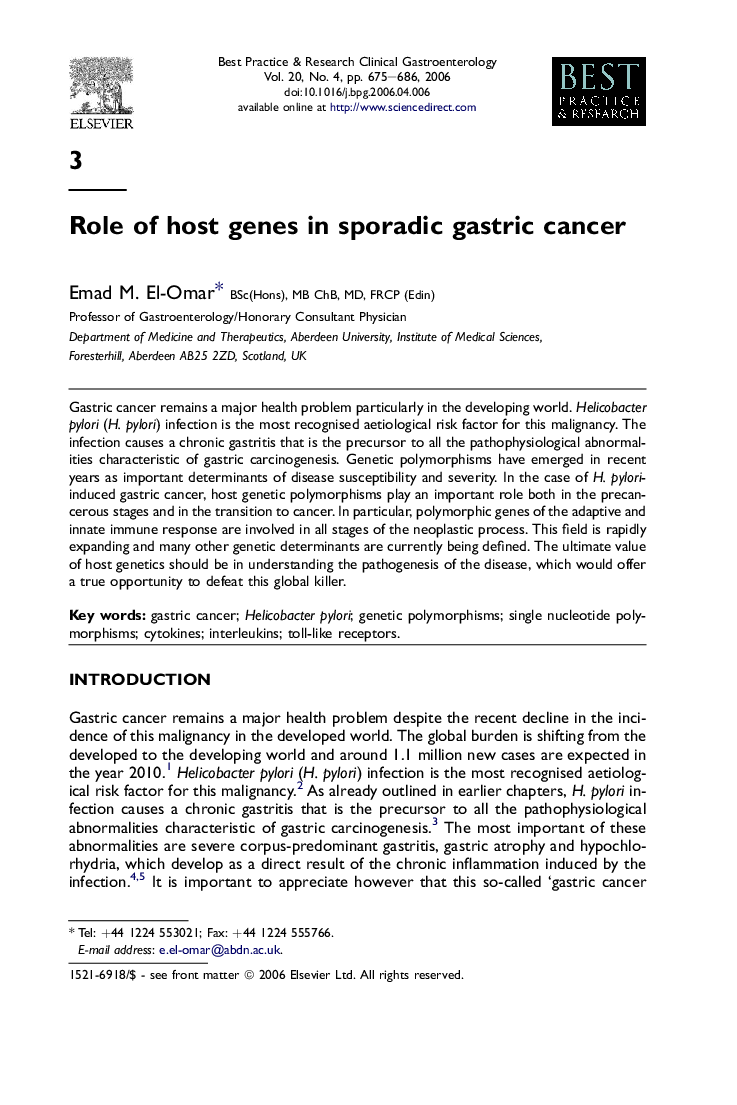| Article ID | Journal | Published Year | Pages | File Type |
|---|---|---|---|---|
| 3254823 | Best Practice & Research Clinical Gastroenterology | 2006 | 12 Pages |
Gastric cancer remains a major health problem particularly in the developing world. Helicobacter pylori (H. pylori) infection is the most recognised aetiological risk factor for this malignancy. The infection causes a chronic gastritis that is the precursor to all the pathophysiological abnormalities characteristic of gastric carcinogenesis. Genetic polymorphisms have emerged in recent years as important determinants of disease susceptibility and severity. In the case of H. pylori-induced gastric cancer, host genetic polymorphisms play an important role both in the precancerous stages and in the transition to cancer. In particular, polymorphic genes of the adaptive and innate immune response are involved in all stages of the neoplastic process. This field is rapidly expanding and many other genetic determinants are currently being defined. The ultimate value of host genetics should be in understanding the pathogenesis of the disease, which would offer a true opportunity to defeat this global killer.
